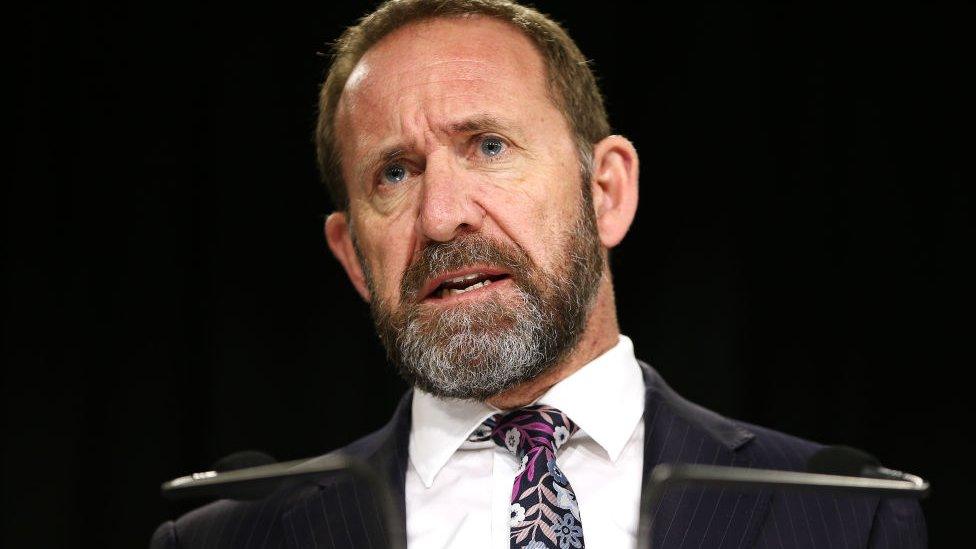Abortion rights: New Zealand moves to decriminalise
- Published

Abortion is now a health issue, the justice minister says
New Zealand's government has proposed decriminalising abortion and allowing women to choose a termination up to 20 weeks into a pregnancy.
Jacinda Ardern's government issued details of a bill which would change abortion laws in force since 1977.
As things stand, a woman may only obtain an abortion if two doctors certify continued pregnancy would endanger her mental or physical health.
Ms Ardern has said she expects voting on the bill to be "close".
The legislation will go before parliament for the first time on Thursday.
What's in the bill?
If passed, the proposal would mean a woman would no longer have to be assessed by a health practitioner for mental or physical wellbeing before 20 weeks.
Women would be able to refer themselves to an abortion service provider and would have to be made aware of counselling services.
After 20 weeks of pregnancy, the person providing the abortion would have to "reasonably believe" the woman's mental and physical health were adequate for the procedure to go ahead.
The legislation also allows for "safe areas" round the premises of abortion providers to prevent harassment from anti-abortion protesters.
"It is time for this to change," Justice Minister Andrew Little said.
"Safe abortion should be treated and regulated as a health issue; a woman has the right to choose what happens to her body," he added.
There is currently no upper limit to when an abortion can take place in New Zealand law, according to New Zealand Family Planning, external, but abortions beyond 20 weeks are rare.
What has the reaction been?
The abortion rights group, Alranz, said the proposals were better than the status quo but the group's president, Terry Bellamak, suggested the 20-week limit should be extended.
"There are scans that happen around 20 weeks and this gives people little time to consider those results," she said.
Alranz has previously complained that New Zealand's abortion laws undermine the human rights of pregnant women.
Anti-abortion campaign group Voice for Life described the bill as "extremely disturbing" and said Ms Ardern's government had no public mandate to introduce it.
Voice for Life's Kate Cormack told Radio New Zealand the bill was "counter-productive to women's health".
Will it pass?
Ms Ardern was elected in 2017 and formed a coalition between her Labour Party and the nationalist New Zealand First, with support from the Greens.
But disagreements within the coalition held up the bill.
The legislation will be dealt with in parliament as a "conscience issue", meaning MPs will not have to vote along party lines.